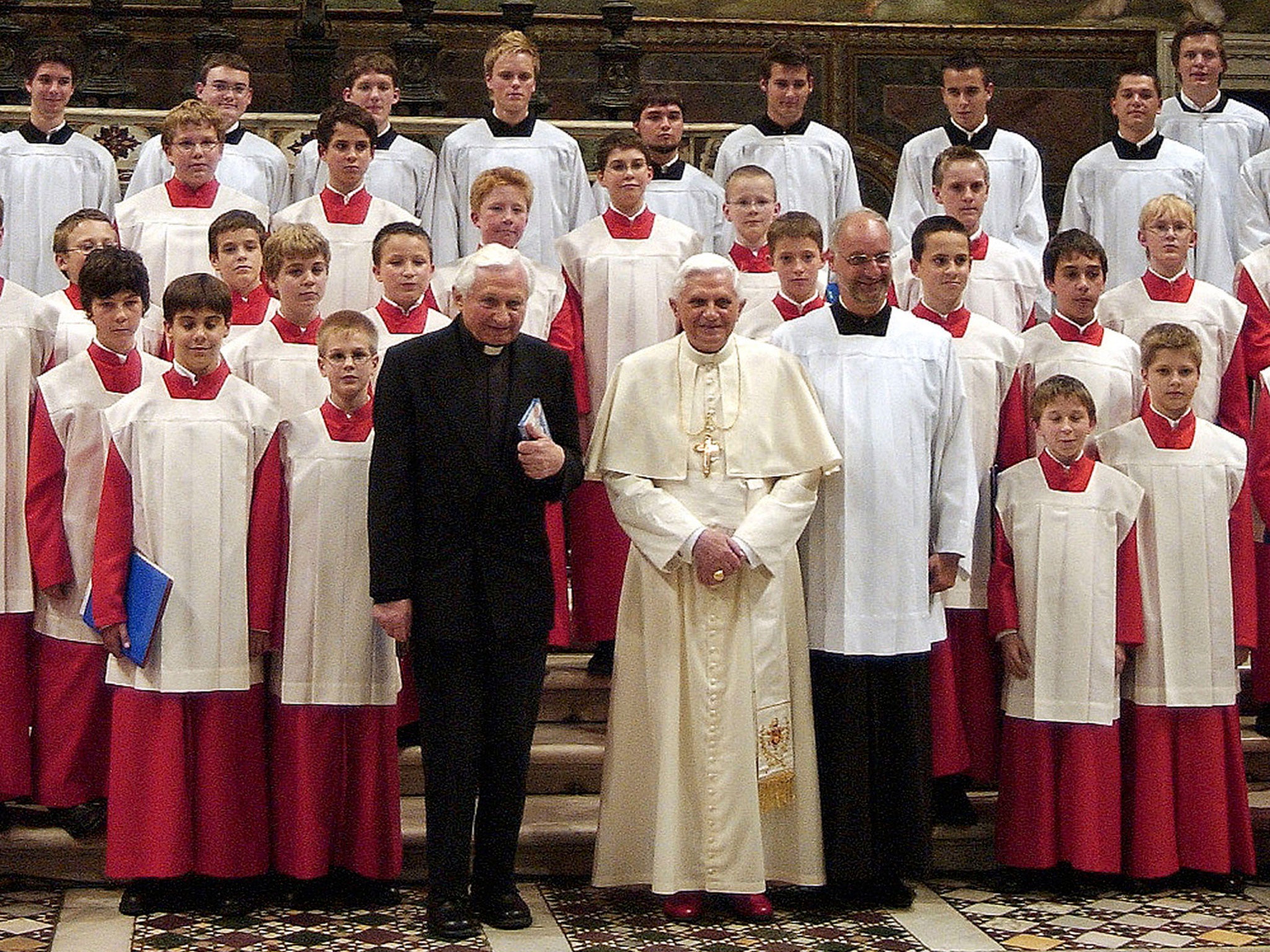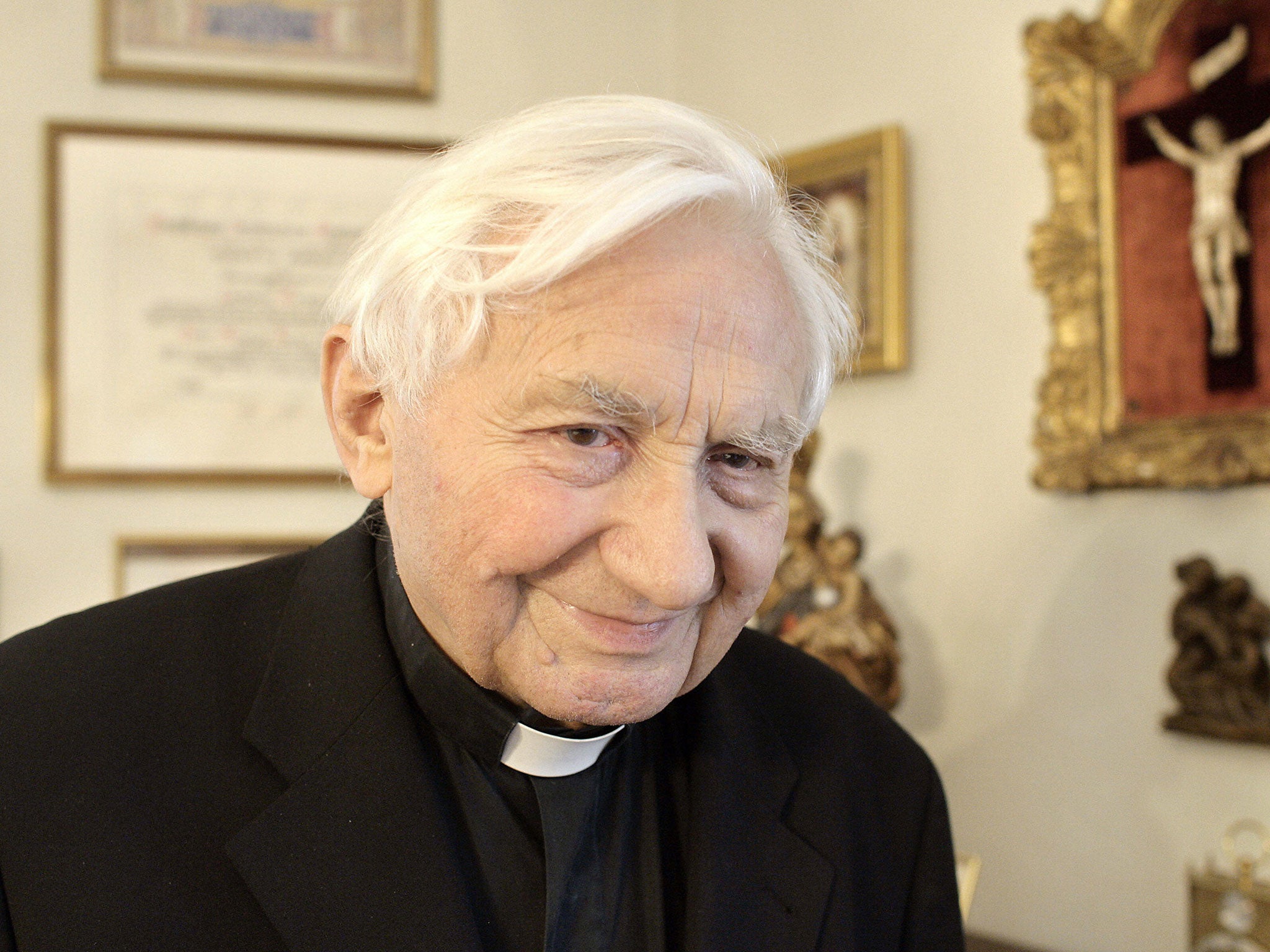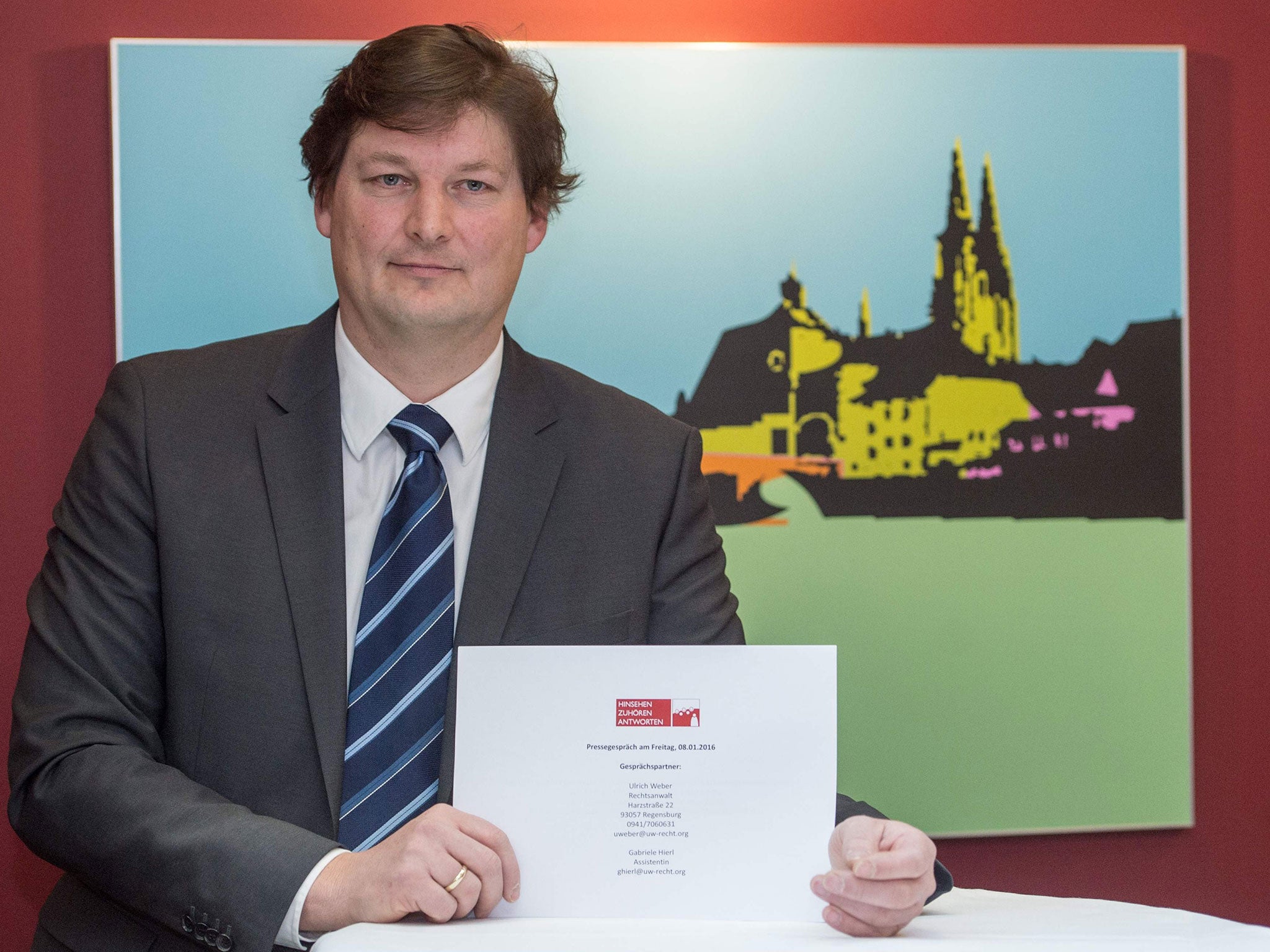Catholic Church investigates alleged abuse of more than 200 boys in choir conducted by Pope Benedict's brother
An investigation has revealed alleged abuse ranging from beating to rape from 1953 to1992

Your support helps us to tell the story
From reproductive rights to climate change to Big Tech, The Independent is on the ground when the story is developing. Whether it's investigating the financials of Elon Musk's pro-Trump PAC or producing our latest documentary, 'The A Word', which shines a light on the American women fighting for reproductive rights, we know how important it is to parse out the facts from the messaging.
At such a critical moment in US history, we need reporters on the ground. Your donation allows us to keep sending journalists to speak to both sides of the story.
The Independent is trusted by Americans across the entire political spectrum. And unlike many other quality news outlets, we choose not to lock Americans out of our reporting and analysis with paywalls. We believe quality journalism should be available to everyone, paid for by those who can afford it.
Your support makes all the difference.More than 200 children in a choir formerly conducted by the former Pope’s brother may have been beaten and sexually abused over almost four decades in Germany.
There is no suggestion that Georg Ratzinger was involved in the alleged crimes, which are now the subject of an investigation, and he denies knowledge of the incidents.
Mr Ratzinger, the elder brother of Pope Benedict XVI, was a led the Regensburger Domspatzen boys' choir from 1964 to 1994.

The choir, based at St Peter's Cathedral in Regensburg, Bavaria, traces its origins back to the 900s and is famous throughout Germany and beyond, performing for the Queen during a state visit and being commemorated with a 2003 postage stamp.
Ulrich Weber, a lawyer leading the probe commissioned by the Catholic diocese of Regensburg, said the 231 alleged victims included 50 who made “plausible” claims of sexual abuse at the choir and two associated boarding schools between 1953 and 1992.
More than 140 people were interviewed as part of his eight-month investigation, which included that almost a third of all pupils at the schools in Etterzhausen and Pielenhofen suffered some form of abuse, including sexual assault ranging from touching to rape.
“The events were known internally and criticised, but they had almost no consequences,” Mr Weber said on Friday.

His report listed other mistreatment included beatings, caning, forced eating or denying food and children being hit with “various objects” including signet rings and keychains and public humiliation.
“Even if the use of corporal punishment is viewed in the context of the time, looking at the law – allowing beating for the punishment or prevention of disobedience – shows it was grossly disproportionate, since “disobedience” was scarcely evident in the reviewed cases.”
Mr Weber also said that it “could not be ruled out” that corporal punishment may have led to sexual abuse in some cases.
Most of the allegations, which surfaced in 2010 publicly, have now passed the statute of limitations for criminal complaints according to German law.
The diocese published the interim report on its website, along with a statement by Bishop Rudolf Voderholzer.
“It hurts me and my soul – behind every single case is a human being, a child’s soul severely tortured and often marked for life by these acts.
“I cannot undo it and can only ask the victims for forgiveness.”
Bishop Voderholzer said he would personally meet any of the victims who wanted to speak to him and accused two unnamed former school leaders of imposing a “system of terror”.
“It is not up to me to pass judgement on the perpetrators because they have died,” he said. “They must answer to the judgement of Christ.”
The diocese has previously offered to pay €2,500 (£1,880) in damages to each of the victims.
An advisory board including victims’ representatives, choir board, Vicar General and Bishop and mediators will now consider what action to take on the report.
Additional reporting by AP